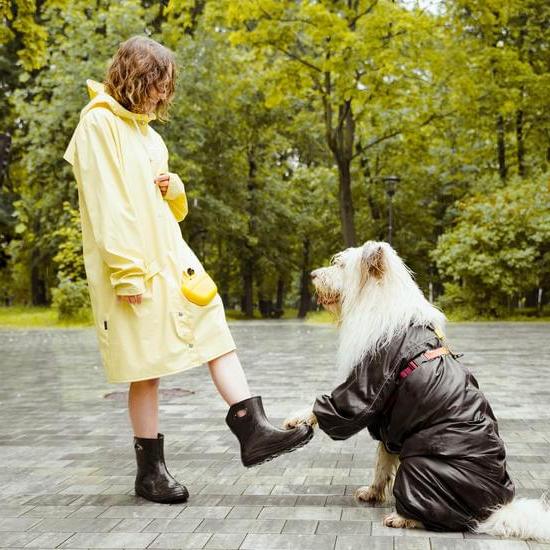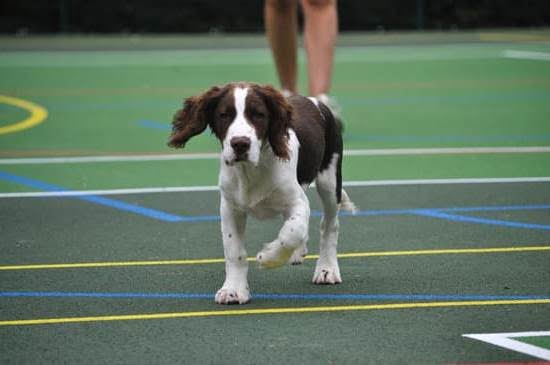Are you wondering how to take dogs on train for your next adventure? Traveling with dogs is becoming increasingly popular, and many dog owners are opting to bring their furry companions along for train rides.
From researching dog-friendly trains to preparing your pup for the journey, there are several important factors to consider when traveling with your dog by train. In this article, we will discuss everything you need to know about taking your dog on a train trip, from understanding train policies to managing your dog’s behavior and ensuring a stress-free travel experience.
As more people seek ways to include their pets in their travel plans, the demand for pet-friendly transportation options has grown. Many train companies have recognized this trend and now offer accommodations for passengers traveling with their canine companions.
However, navigating the process of taking a dog on a train can be quite complex, as each company may have different policies and requirements. It is essential for every dog owner to familiarize themselves with these protocols before embarking on a trip with their pet.
In addition to understanding the specific policies of each train company, there are several other aspects to consider when planning a train journey with your dog. This includes training and socializing your dog for the trip, ensuring that you have all necessary paperwork and documentation in order, packing essential items for your pup’s comfort and safety, as well as managing your dog’s behavior on the train.
Whether you are an experienced traveler or considering bringing your pup along for the first time, this comprehensive guide will provide you with valuable information on how to make traveling with your dog by train a positive experience for both of you.
Understanding Train Policies
Traveling with your furry friend is becoming increasingly popular, and many train companies are now offering dog-friendly services. However, before embarking on a trip with your dog, it’s essential to understand the policies of different train companies and choose the most suitable option for you and your pup.
When researching and choosing dog-friendly trains, consider the following factors:
- Size Restrictions: Some train companies have specific size restrictions for dogs, so make sure your pup meets the requirements.
- Reservations: Determine whether you need to make a reservation for your dog in advance, as some trains have limited space for pets.
- Additional Fees: Find out if there are any extra costs associated with bringing your dog on board, such as a pet fare or cleaning fee.
It’s also important to familiarize yourself with the rules and regulations regarding dogs on trains, such as whether they need to be leashed or muzzled during the journey. Additionally, consider the duration of the trip and whether there will be opportunities for bathroom breaks and exercise for your dog along the way. By thoroughly researching and understanding train policies, you can ensure a smooth and enjoyable travel experience for both you and your canine companion.
Preparing Your Dog for the Journey
Before taking your dog on a train journey, it is crucial to ensure that they are properly trained and socialized to make the experience as stress-free as possible. Begin by desensitizing your dog to the sights and sounds of a train station by gradually introducing them to these environments. This will help them feel more comfortable when it’s time to board the train.
Basic training commands such as “sit,” “stay,” and “come” are essential for managing your dog during the journey. Practice these commands in different settings to reinforce obedience and ensure that your dog responds appropriately in a variety of situations. Additionally, proper leash manners are important when navigating train stations and boarding the train, so spend time reinforcing loose leash walking with your pup.
Socialization is also key in preparing your dog for train travel. Expose them to new people, other dogs, and varied environments to help reduce anxiety and fearfulness during the journey. Positive interactions with different stimuli will help your dog feel more at ease in unfamiliar surroundings, making for a smoother train ride for both you and your furry companion.
Finally, consider enrolling your dog in a training class or working with a professional trainer if you encounter specific behavioral challenges or if you need guidance on how to prepare your dog for traveling on trains. A well-trained and socialized dog will contribute to a positive experience for everyone involved in the journey.
| Preparing Steps | Description |
|---|---|
| Desensitization | Gradually introduce your dog to train station sights and sounds. |
| Basic Commands | Reinforce obedience through practice in various settings. |
| Socialization | Expose your dog to new people, dogs, and environments. |
Necessary Paperwork and Documentation
Before embarking on a train journey with your furry friend, it is crucial to ensure that you have all the necessary paperwork and documentation in place. Most train companies require health certificates and vaccination records for dogs traveling on their trains. These documents not only ensure the safety and well-being of your dog but also help to maintain a healthy environment for all passengers on board.
Health certificates are typically issued by a veterinarian and provide proof that your dog is in good health and free from contagious diseases. This document is usually required for interstate travel and may need to be presented at the time of boarding or upon request by train staff. Additionally, vaccination records, including up-to-date rabies vaccination certificates, are essential to demonstrate that your dog has received the necessary immunizations to protect against preventable diseases.
It is important to research the specific requirements of the train company you will be traveling with, as policies may vary. Some trains may also have breed restrictions or additional regulations for service animals, so familiarizing yourself with these guidelines beforehand will help streamline the process of obtaining the required paperwork for your dog’s journey.
| Document | Requirement |
|---|---|
| Health Certificate | Proof of good health and no contagious diseases |
| Vaccination Records | Up-to-date rabies vaccination certificate |
Packing for Your Pup
When traveling with your dog on a train, it’s essential to pack everything your furry friend will need for a comfortable and safe journey. Here are some essentials to include in your pup’s travel kit:
- Leash and harness: Make sure to keep your dog securely leashed at all times while on the train platform and when disembarking at the destination.
- Food and water: Pack enough food for the duration of the journey and bring along a portable water bowl to keep your dog hydrated.
- Comfort items: Bring along your dog’s favorite blanket or toy to provide them with a sense of familiarity and comfort during the trip.
- Medical supplies: If your dog has any specific medical needs, such as medication or first-aid supplies, be sure to pack these in case of emergencies.
Additionally, it’s important to consider the space limitations on a train when packing for your pup. Make sure to pack efficiently while still ensuring that all of your dog’s essential needs are met.
It’s also a good idea to familiarize yourself with the train company’s rules and regulations regarding pet travel. Some trains may have specific requirements for pet carriers or may restrict certain breeds from traveling, so be sure to research this information beforehand. By being prepared and packing thoughtfully, you can ensure that both you and your dog have a smooth train journey.
Etiquette and Behavior
Respecting Train Rules and Regulations
When traveling with your dog on a train, it is essential to ensure that you are aware of and follow all the rules and regulations set forth by the train company. This includes adhering to any size or weight restrictions for dogs, as well as understanding any specific guidelines for behavior while on board.
It is important to remember that not all passengers may be comfortable around dogs, so it is crucial to respect their space and ensure that your dog’s behavior does not disrupt the travel experience for others.
Keeping Your Dog Calm and Comfortable
Train rides can be a new and potentially stressful experience for your dog, so it is important to take steps to keep them calm and comfortable during the journey. Bringing along familiar items such as a favorite toy or blanket can provide a sense of security for your dog.
Additionally, ensuring that your dog has had plenty of exercise before the journey can help them remain calm during the ride. Consider discussing with your veterinarian whether natural calming aids or prescribed medication may be appropriate if your dog experiences significant anxiety during travel.
Interacting With Other Passengers
It’s important to consider how your dog may interact with other passengers while on the train. Some travelers may want to pet or interact with your dog, while others may prefer to keep their distance.
Always ask for permission before allowing others to approach or pet your dog, and be mindful of potential allergies or fear of dogs among other passengers. Keeping your dog close by and under control at all times will help ensure that everyone has a pleasant journey.
Tips for Stress-Free Travel
Creating a Comfortable Space
When traveling with your dog on a train, it’s important to create a comfortable and familiar space for them to relax during the journey. Bring their favorite blanket, toy, or bed to help them feel secure and at home.
Consider using a crate or carrier if your dog is accustomed to it, as this can provide a sense of security during the unfamiliar train ride. Additionally, bringing along some treats or chew toys can help keep your dog occupied and relaxed throughout the trip.
Exercise Before the Journey
Before boarding the train, make sure to give your dog plenty of exercise to help them expend energy and reduce anxiety. Take them for a long walk or play session to tire them out before the journey. A tired dog is more likely to rest during the train ride, making for a calmer and more stress-free travel experience for both you and your furry companion.
Calming Techniques
If your dog tends to get anxious during travel, consider using calming techniques such as pheromone sprays or natural remedies like lavender oil. These products can help soothe your dog’s nerves and promote relaxation during the train journey.
Some pet owners also find success in using pressure wraps or vests designed to provide gentle, constant pressure that helps calm anxiety in dogs. Always consult with your veterinarian before using any calming products on your dog to ensure they are safe and appropriate for your pet.
By implementing these tips for stress-free travel, you can help keep your dog calm and relaxed during the train journey, making it a more enjoyable experience for both you and your furry friend.
Arrival and Conclusion
In conclusion, traveling by train with your dog can be an enjoyable and rewarding experience if done properly. Navigating the arrival process at your destination is just as important as preparing for the journey itself.
Be sure to have a plan in place for getting your pup off the train safely and comfortably, especially if you are traveling alone. Keep in mind that your dog may be disoriented from the journey, so take things slow and allow them to adjust to their new surroundings.
As you disembark from the train, remember to clean up after your dog and ensure they are behaving calmly and responsibly. This will not only reflect well on you as a responsible pet owner, but it will also contribute to a positive experience for others who may be sharing the train platform with you.
Lastly, be sure to reward your dog for their good behavior throughout the journey. This will reinforce positive experiences associated with train travel and make future trips even more enjoyable for both of you.
Frequently Asked Questions
Can I Buy a Seat for My Dog on Amtrak?
Unfortunately, Amtrak does not allow pets to have their own seat on the train. Pets are required to stay in a carrier under the seat or be checked as baggage, depending on the size and weight of the pet.
Can My Dog Sit With Me on the Train?
If your dog is small enough to fit in an approved pet carrier, then they can travel with you on the train. The carrier must fit under the seat in front of you, and there are specific guidelines regarding the size and type of pet carriers allowed on Amtrak trains.
How Do You Travel With a 50 Pound Dog?
When traveling with a 50-pound dog, it’s important to ensure that they are safely secured in a well-ventilated travel crate or kennel that meets Amtrak’s requirements. If your dog is too large for a carrier, then you may need to consider other modes of transportation or consult with Amtrak about their guidelines for larger dogs.
Additionally, it’s crucial to make sure that your dog is comfortable and has everything they need for the journey, such as food, water, and bathroom breaks during stops.

Welcome to the blog! I am a professional dog trainer and have been working with dogs for many years. In this blog, I will be discussing various topics related to dog training, including tips, tricks, and advice. I hope you find this information helpful and informative. Thanks for reading!





